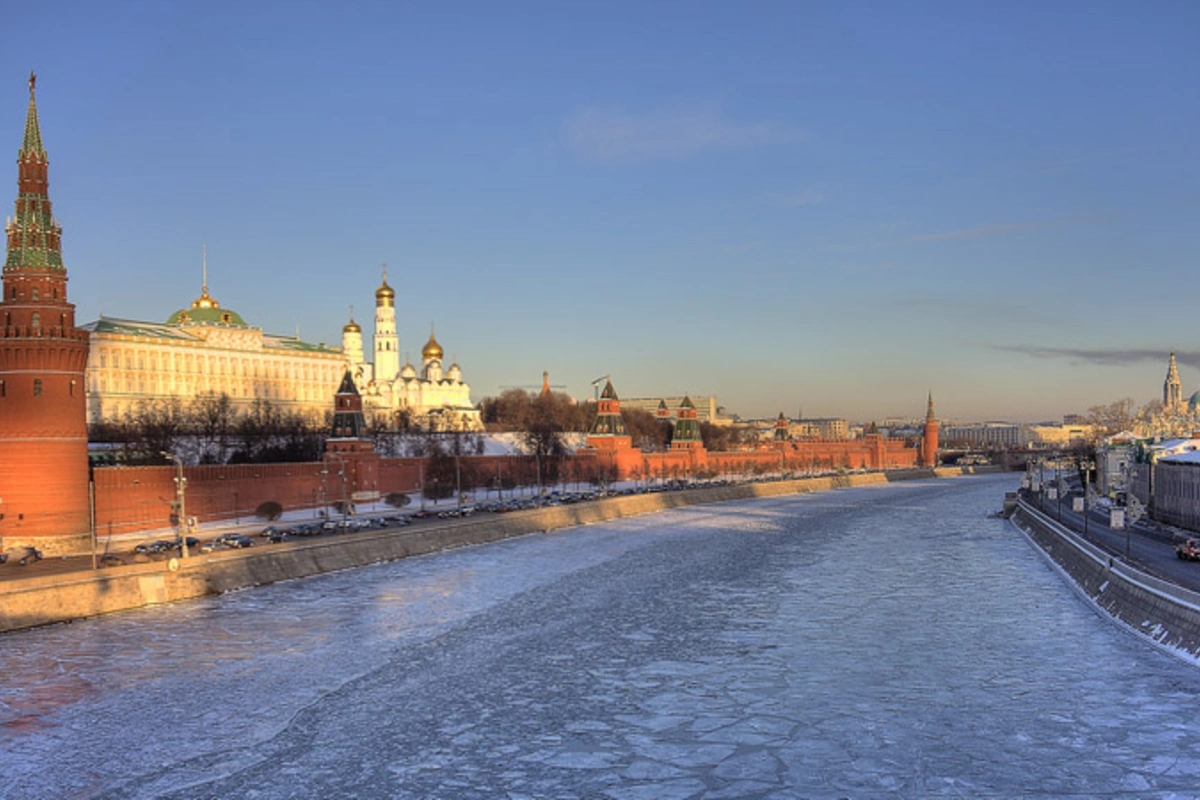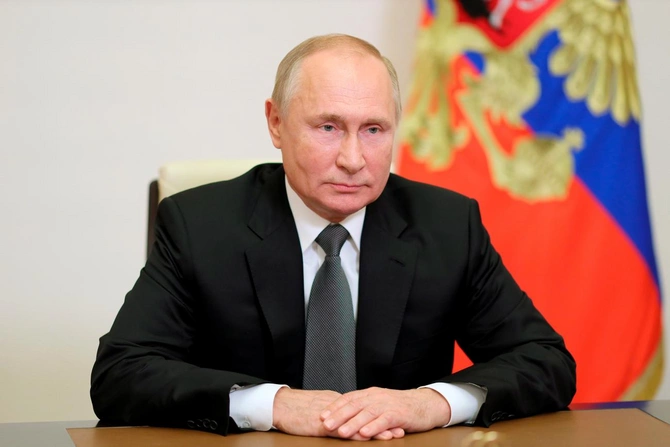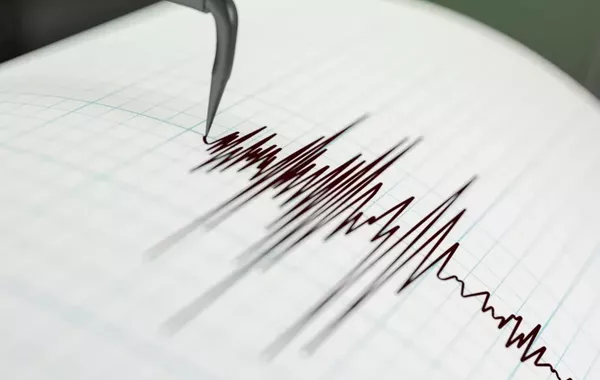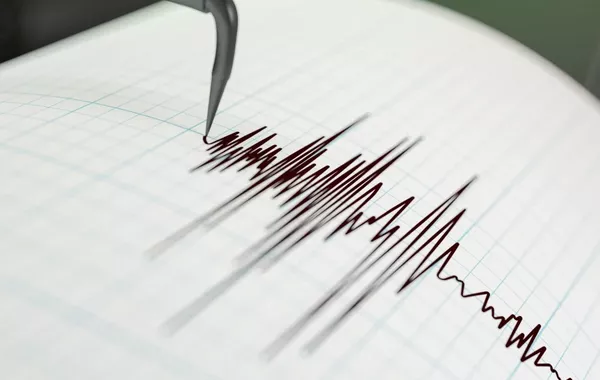
(Pic: Flickr/Pavel Kazachkov)
In Siberia, Russia is experiencing the consequences of climate change in heat waves, melting permafrost, wildfires, biodiversity loss, and damage to infrastructure. Impacts associated with global warming are happening four times faster across much of Russia than in other parts of the world. Consequently, Russian domestic policy treats climate change as a challenge to its economic and environmental well-being, The Caspian Post reports citing Think Global Health.
In foreign policy, climate change is a new frontier in Russia's efforts to protect its national security and advance its geopolitical interests. Russian support for Azerbaijan's hosting of the twenty-ninth Conference of the Parties (COP29) of the UN Framework Convention on Climate Change (UNFCCC) in November 2024 highlights the Kremlin's ambitions to shape global climate politics. Those ambitions have grown despite the Ukraine war, domestic economic problems associated with Western sanctions, criticisms of Russia's inadequate mitigation of greenhouse gases, and pursuit of oil and gas cooperation during COP meetings.
Russian climate diplomacy is growing more prominent as U.S. President-elect Donald Trump prepares to withdraw the United States from the Paris Agreement on Climate Change and from efforts to increase climate finance after COP29. What Moscow wants to achieve in climate diplomacy, and how it intends to secure those objectives, makes Russian foreign policy important for collective action on climate change over the next decade.
The Road to Russia's Climate Strategy
Russian policies on climate change reflect the geopolitical shifts the country faced when the Cold War ended and the changes in the international balance of power over the first two decades of the twenty-first century. Following the Soviet Union's collapse and during a period of domestic turmoil, a destabilized Russia joined the emerging international climate change regime by signing the UNFCCC in 1992 and the Kyoto Protocol in 1997.
Russia remained engaged with the UNFCCC and adopted its first climate strategy, the Climate Doctrine, in 2009. However, its reemergence as a major power in the 2010s, its adoption of the Paris Agreement in 2016, its vaccine diplomacy during COVID-19, and the war with Ukraine in the early 2020s have transformed Russian policies by making climate change a national security priority.
In 2021, Russian leadership adopted the National Security Strategy that included the idea of ecological security, which covers climate change. That year, Moscow also issued a socioeconomic development plan that aimed to achieve low domestic greenhouse gas emissions by 2050. In 2023, Moscow updated its foreign policy concept and revised the Climate Doctrine in ways that subordinated its evolving climate policies to its national security goals.
Russia's Positions on Mitigation and Adaptation
President Vladimir Putin clarified what the foreign policy and climate strategies meant for climate mitigation when he stated that, although a transition to carbon neutrality does not damage Russia's interests, accelerating the shift toward green energy threatens those interests. The Kremlin believes that moving to a green economy creates more competition for resources that could result in underfunding fossil-fuel energy sources and increase the potential for an energy crisis. Tighter climate policies and regulations outside Russia could also hurt oil and gas exports, which produce significant revenue for the public and private sectors.
To adhere to national security considerations, the Russian climate strategy embraces a low-emission, carbon neutrality approach to mitigation and supports adaptation measures as more cost effective given the economy's dependence on fossil fuels. The Russian Central Bank has warned that without more adaptation actions, one-third of companies in important sectors could face financial decline between 2030 and 2040. Russia bolsters its mitigation and adaptation positions with scientific research to strengthen its voice in climate diplomacy.

As outlined in the climate strategy adopted in 2023, Russia is taking steps to cutting emissions in line with achieving low emissions by 2050. The Climate Doctrine highlights the economic and reputational risks that inadequate mitigation actions can create. Over the past two years, Moscow has developed the infrastructure for a carbon market through regulation and monitoring, the Ministry of Economics playing a leading role in oversight. Important stakeholders include the Central Bank of Russia, the presidential administration, the state-run nuclear corporation Rosatom, and the private sector.
In 2022, Russia launched a national voluntary carbon market, which to date has registered nearly 40 climate projects by private-sector entities that have the potential to produce more than 82 million carbon credits. The Russian Central Bank has developed recommendations and requirements for financial organizations to assess climate risk, stress-test methodologies, issue green bonds, and trade carbon units on the National Trading Exchange.
The carbon-neutrality initiative begun in the Sakhalin region in 2022 aims to achieve carbon neutrality by 2025 and, if successful, would make the region the first in Russia to meet the neutrality goal. As established by federal law, the Sakhalin experiment involves creating a carbon-unit system, testing emission quotas, launching nature-based carbon-capture projects, and tracking carbon absorption by forest and marine ecosystems.
Russia is also implementing mitigation and adaptation actions in the Arctic, where global warming is thawing the permafrost and affecting development of the Northern Sea Route. In Yakutia, for example, public-private infrastructure projects include nature-based adaptation solutions, and Rosatom's installation of low-power nuclear reactors supports regional energy needs without increasing greenhouse gas emissions. Those adaptation and mitigation measures align with Russia's goal of modernizing its economy through climate policies.
Russia's Climate Diplomacy
Russia's foreign policy strategy considers climate change and global health to be complex, transboundary issues that require science-based cooperation and technological collaboration. Unlike Russia's heavily bilateral approach to global health, the strategy emphasizes the country's commitments to multilateral agreements, particularly the UNFCCC and the Paris Agreement, as important platforms for climate diplomacy. In Russian foreign policy, climate change receives more attention than global health, especially concerning energy-related issues.
Although Russia links domestic climate policy and national security, Moscow has opposed treating climate change as a global security issue. In 2021, for example, it blocked an attempt to place climate change on the UN Security Council agenda. It justified its position by arguing that climate change is not a root cause of armed conflicts and should not divert attention away from addressing the real causes of war.
Under its climate strategy, Russian diplomacy seeks to introduce normative principles, develop legal regulations, support economic measures to advance adaptation, develop scientific collaboration and information sharing, and deepen international cooperation. Russia would like to strengthen international verification of national developments on mitigation and adaptation. Moscow also wants to increase international involvement in Russia's carbon market.
In addition to participating in the UNFCCC and the Paris Agreement, Russia engages with nations on climate change in other diplomatic venues. It has supported collective action on climate policies, for example, among the members of the Commonwealth of Independent States and the Shanghai Cooperation Organization.
Moscow is active in climate cooperation within the BRICS+ group, whose membership has grown from Brazil, Russia, India, China, and South Africa to include Egypt, Ethiopia, Iran, and the United Arab Emirates (UAE). While chairing the BRICS+ during 2024, Russia launched a Contact Group on Climate Change and Sustainable Development and hosted the first BRICS+ conference on climate change. BRICS+ as a venue for climate diplomacy, however, faces challenges. BRICS+ countries have conflicting energy strategies, the group lacks a central body to coordinate initiatives, and carbon markets among its members are in different stages.
Russia cooperates on climate change with countries reliant on fossil fuels. For example, Moscow facilitated the sale of carbon units from a Russian forest fire protection project-operated by the aluminum company JSC Rusal Krasnoyarsk-to the UAE's Equity International General Trading group. Russia and the UAE see that deal as a step toward establishing a BRICS+ carbon market.
The Russian leadership wants BRICS+ to be a testing ground for climate policies, such as carbon markets, that low- or middle-income countries could adopt as mitigation and adaptation solutions. That approach reflects Moscow's vision of a new model of global governance not dominated by the United States and Western countries.
Russian climate diplomacy also involves promoting nuclear energy in bilateral relations that involve Rosatom. Nuclear energy technology is a high-tech sector in which Russia is a global leader. Through Rosatom, Moscow is well placed to transfer technology and know-how to countries that believe nuclear power should be part of their green energy transitions. Uzbekistan will be the first country in which Russia will build a low-power nuclear plant under this part of Moscow's climate diplomacy.
Strategic Design, Strategic Challenges
Moscow has constructed a strategy that acknowledges climate change as a national and global problem and that aligns domestic and international mitigation and adaptation actions with core Russian interests in national security, geopolitical influence, and global governance reform.
Russia is committed to multilateralism through COP meetings and the Paris Agreement, where it seeks to be an active rather than a sidelined participant. Climate diplomacy provides a unique platform for dialogue with other countries on energy, technology, economic, and other sensitive issues. Severe Western sanctions have also pushed the Kremlin to accelerate its climate efforts.
Russia's approach might not fully achieve the objectives that Moscow has set. As climate change becomes integrated into Russia's core interests, ongoing challenges-including the Ukraine war, tensions in the Middle East, growing isolation in scientific cooperation with the West, or national problems-could marginalize climate efforts in domestic and foreign policies. Such setbacks could benefit China geopolitically and jeopardize the future of science-driven climate efforts at a time when greater national action and international cooperation are crucial.
Share on social media

